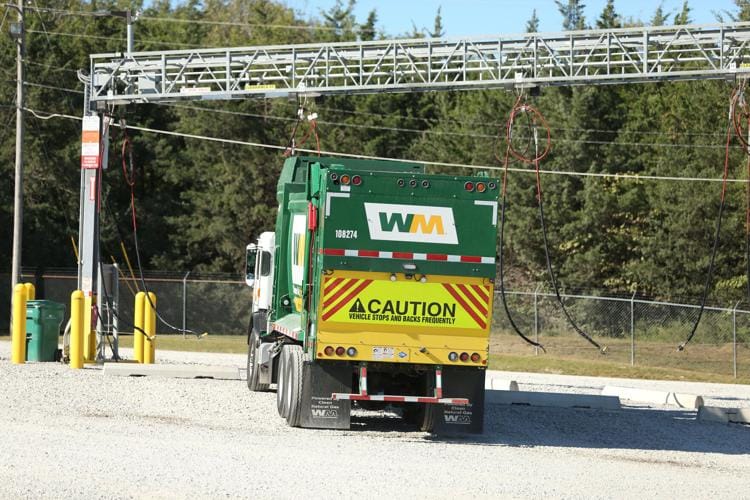October 16, 2025. WM celebrated the grand opening of its new compressed natural gas (CNG) fleet facility, which the company says represents a $10 million investment in both its infrastructure and fleet.
In a statement, the company said it is continuing to invest “in sustainable operations and cleaner energy solutions” as it advances toward a goal of operating a 100% renewable natural gas (RNG) fleet by 2026.
WM, which handles the city’s waste and recycling pickup, first introduced its Tupelo’s CNG fleet nearly two years ago with four trucks. Today, the company has 30 trucks in Tupelo, with 85% of the fleet running on CNG, which the company says is accelerating its transition to alternative fuels.
Some 70% of WM’s nationwide collection fleet is powered by alternative fuels, and the company says it has reduced fleet emissions an estimated 30% since 2021.
“WM is proud to call Tupelo home and to serve Northeast Mississippi for nearly 40 years,” said Kevin Shackelford, WM Senior District Manager. “This CNG fleet facility underscores our ongoing commitment to sustainability, innovation and the communities we serve. As we continue transitioning our fleet to cleaner, more efficient natural gas vehicles, we are reducing emissions and building a stronger, more sustainable future for our region.”
Tupelo Mayor Todd Jordan praised WM’s investment, noting the company’s longstanding partnership with the city and its shared commitment to environmental stewardship. “WM’s leadership in sustainability continues to make a real difference here in Tupelo. Their investment in cleaner fleet technology not only benefits our local environment but also enhances the quality of life for residents by reducing noise and emissions in our neighborhoods,” Jordan said.
WM said CNG-powered vehicles offer several advantages, including lower emissions, quieter operation and a reduced carbon footprint compared to diesel trucks. The new Tupelo facility provides the infrastructure to fuel and maintain its fleet, as many as 26 vehicles at a time, “ensuring efficient service while supporting environmental progress in the region.”

